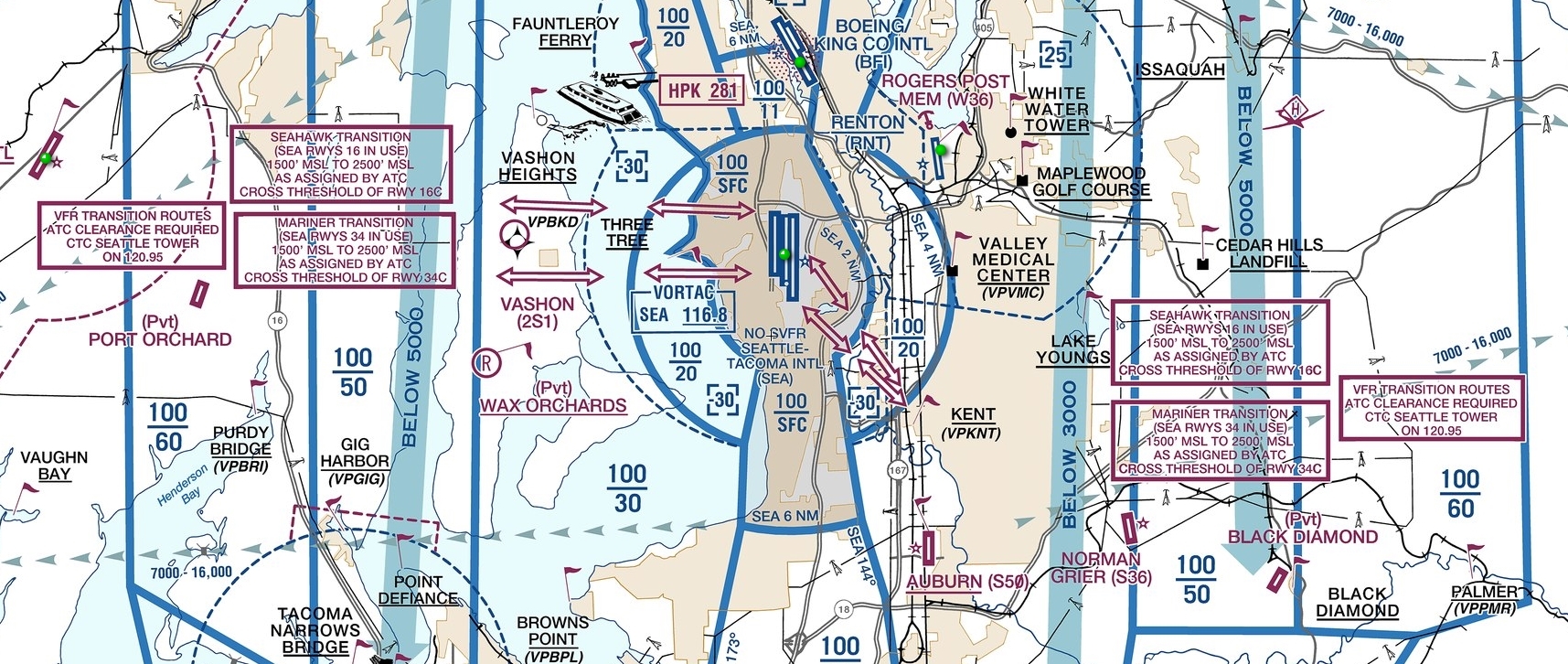| Version | 1 |
| Created | 01/01/2016 00:39 |
| Last Updated | 09/19/2023 17:20 by Vi Jackson |
There are two VFR transitions over KSEA: Seahawk and Mariner. Seahawk is used when in south flow. Mariner is used when in north flow. VFR aircraft may request one of these to overfly KSEA. Assign an altitude per the SEA ATCT SOP.

The following is a scenario between a VFR aircraft requesting the SEAHAWK transition, WEST to EAST.
N57SF: “Seattle Tower, Skyhawk N57SF, 10 miles west at 1,500 feet requesting the Seahawk transition.”
SEA_TWR: “N57SF, Seattle Tower, squawk 1524."
N57SF resets transponder to squawk 1524
SEA_TWR observes target with beacon code 1524 on STARS and initiates a track. Controller then approves a point-out with S46. ("S46, Seattle Local, pointout N57SF 10 west of SEA VFR transition eastbound.")
SEA_TWR: “N57SF, radar contact position as reported. Cleared through the Seattle-Tacoma Class Bravo Airspace via the Seahawk transition, maintain 2500 feet. SEA altimeter 29.94; report clear of the Bravo.”
give traffic advisories as needed while you are providing radar services to the pilot
pilot reports clear of the Class Bravo flying along the assigned/requested transition route
SEA_TWR: “N57SF, resume own navigation, remain clear of the Seattle-Tacoma Class Bravo airspace, radar service terminated, squawk VFR, frequency change approved."
Remember, approving or denying VFR requests, like transitions, is based on controller workload. Requests shall not be denied unless there is a situation which genuinely demands it, let VFR aircraft enjoy the freedom provided to them by nice weather. Have fun!
